-
Found this after a long time. #Yummy #AllRaw #rawmeat #Ethiopia via Instagram
-
CALL FOR PAPERS: Special issue on “The Social Innovation capacity of Open Education and Learning”
Special issue on “The Social Innovation capacity of Open Education and Learning” to be published at the Interaction Design and Architecture(s) Journal (IxD&A) a SCOPUS and Web of Science – Emerging Sources (Thomson Reuters) indexed Journal (ISSN 1826-9745, eISSN 2283-2998)… -
Workers move scrap of a load of dirt in front of a building under construction in Kasanchis #addisababa #Ethiopia #addistransformation
Workers move scrap of a load of dirt in front of a building under construction in Kasanchis #addisababa #Ethiopia #addistransformation via Instagram -
CALL FOR PAPERS: A special issue of Computers in the Schools, focusing on Research on One-to-One Learning
Call for papers for a special issue of Computers in the Schools, focusing on Research on One-to-One Learning The special issue will be edited by Dr. William A. Sadera and Dr. Liyan Song. One-to-one computing is a learning environment where… -
Call for Proposals: Systems Thinking and Change in Education: (A Springer Major Reference Work)
Call for Proposals Systems Thinking and Change in Education: (A Springer Major Reference Work) Do you work on changing education? Do you employ a perspective where systems thinking (linear or non-linear) describes causes and effects impacting education contexts? A new… -
Call for Proposals: Technology, Instruction, Cognition, and Learning Special Issue
Call for Proposals: Technology, Instruction, Cognition, and Learning Special Issue: Meaningful transformation of instruction with rapidly changing learning technologies: Practice, theory, research, and ethical considerations and opportunities Technology, Instruction, Cognition and Learning (TICL) is an international, interdisciplinary journal of structural… -
Kasanchis #addisababa #Ethiopia #EthiopiaRising #AfricaRising #NewFlower
Kasanchis #addisababa #Ethiopia #EthiopiaRising #AfricaRising #NewFlower via Instagram -
This Could Be – episode 001
(download audio) If nothing else, it can at least be said that a second podcast was recorded and released within a reasonable amount of time. The next one should be forthcoming later this month. -
Dear haters,I have so much more for you to be mad at, just be…
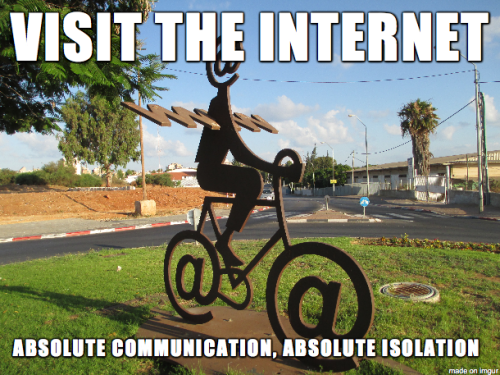
http://imgur.com/MrEfJyB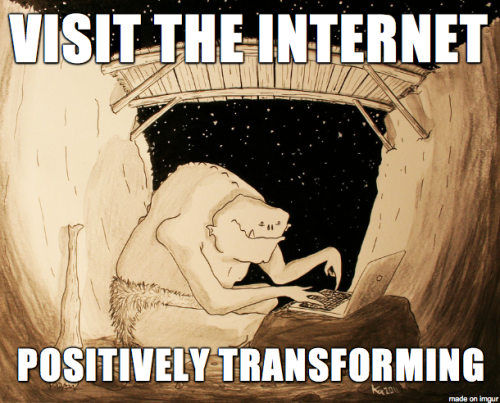
http://imgur.com/t4RyqXfDear haters,
I have so much more for you to be mad at, just be patient.
Yet another daily create, just make memes damn it!
-
It is raining in Addis Ababa #Ethiopia #rainydays #elniño
It is raining in Addis Ababa #Ethiopia #rainydays #elniño via Instagram
-
-
Unfinished Business
(download audio) It looks like all of the technical components are in place. For better or for worse, the Lo is back in the game. -
Forgive Me, Shakespeare, for I have Sarcasmed You
All last week, the DS106 Daily Create community was alive with Shakespeare, as part of the 400th year celebration of the Bard. To say we took it seriously would be an overstatement. But still … each day, we were given words and/or images and/or passages and set free to do what we would. (Thanks to […] -
-
Is This Thing Still On?
A while back there used to be some blog posts, animated GIFs and the odd bit of audio here. This thing was even linked to the ds106 firehose. For a while, it was all fun and exciting. That was a long time ago. The vagaries of life and circumstances provided an easy excuse for the […] -
-
April 25th Deadline — NWeLearn 2016 Call for Proposals
There’s just under a week left to submit! If you know of others who may have interesting topics to present on, please encourage them to submit. 2016 marks the eleventh annual Northwest eLearning Conference, which will be held in Eugene,… -
This week I joined in with #gridsgestures (worth clicking on…
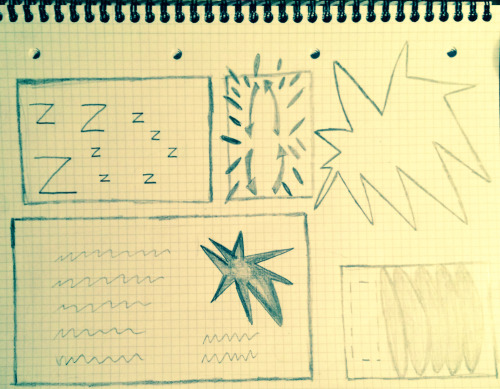
Day 1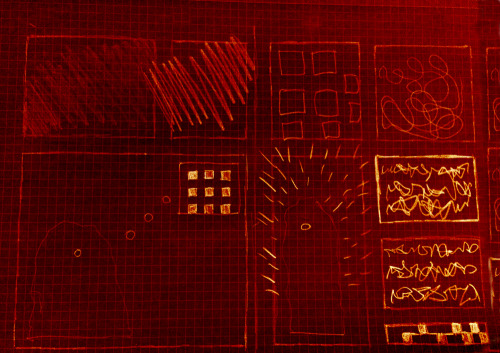
Day 2: Not as planned, never ending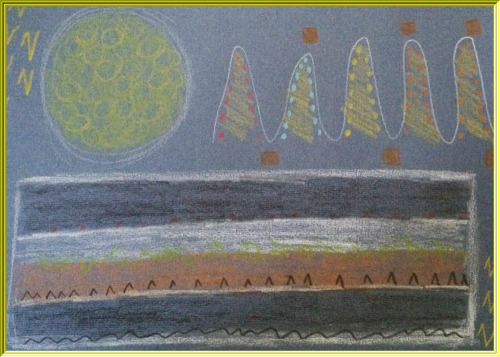
Day 3 - colour but flatlining on sofa with cold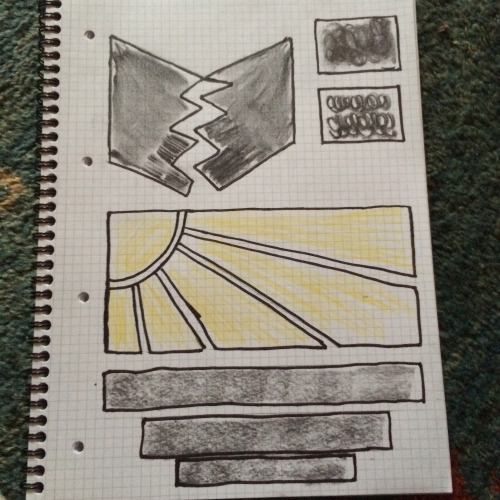
Day 4: a comic is the grid. Today no snafu :)
Day 5 Tears, snot and rain. Watery inside + out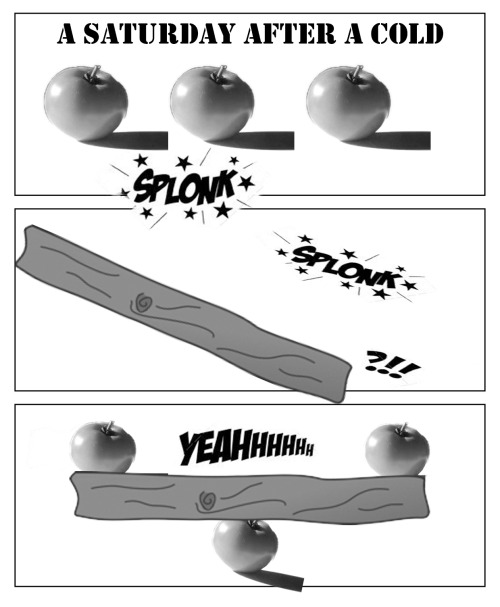
Day 6 - Working with digitalThis week I joined in with #gridsgestures (worth clicking on link to see all contributions) on Twitter. It was a comic making activity without drawing led by @Nsousanis who teaches comics as a way of thinking and uses this activity in his courses as a starting point to learn about time and space on the page.
This was timely for me as I am teaching myself to make comics following Comics: Art in relationship and Drawing Words, Writing Pictures. I have been struck by the idea the ‘time happens in the gutter’ in comics and also by the idea of challenging my imagination to ‘make the panels speak’. The task was to make a grid with marks on the paper that told of our day through the week. The photos above are my attempts, I tried different media to experiment with what might be my preference going forward.
My favourite and the one I got the best feedback was a simple pencil sketch. I think I have learnt how to start ‘to think comics’. Working with panels, text and words means great flexibility. One can let one’s mind create an idea, thumbnail this idea a few times as a kind of script, then production can be a quick sketch, digital, pastels or anything else one chooses. What is interesting to me is that the ‘work’ (for me at least) was in the thinking about the interplay of all elements in comics and how to express an idea on paper.
I think I now get abstract comics as a genre more. I also see what makes minimalist comics work. Look at the work of Shane Simmons, you do not need to learn to draw to produce them, but you do need scripting and an understanding of time in the gutter and how humans seek closure and make meaning, even out of dots! (click on his name to get more readable samples)
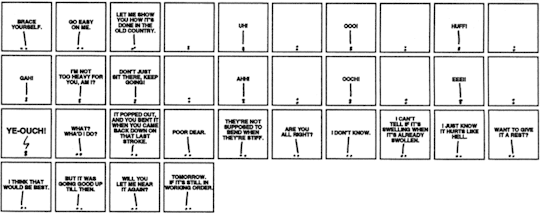
I am also starting to get the idea that what makes a comic funny is what is absent but implied as it makes the reader’s mind work to make sense. I have Matt Madden and Jessica Abel to thank for this as I practiced captioning a simple drawing that was not designed to be funny.
Also this week has shown me the importance of a title or some kind of context setting. I did this on the tweet for each day, but what was said mattered to make sense of the grid (look at the captions in each photograph and the last day has its title embedded - click on any image for gallery). Title or context is another element in relationship in a given comic. What Matt Silady suggests is the we avoid the kind of relationship between the elements where each element says the same thing. Redundancy in comics seems something less than desired. I guess it is because the reader has to do no work. It is all obvious and hence not funny. I see how some of my early digital attempts are just obvious and not funny.
This week was a great week to put together many ideas I have been learning on my courses. Thanks, Nick.
-
Continued Reverberations of Online Connections
flickr photo shared by priyaswtc under a Creative Commons ( BY-NC-ND ) license Three posts recently had me thinking again about the reverberations of online networks or communities or whatever term it is you wish to use to indicate projects that never quite end. First, there was this tweet from my Making Learning Connected MOOC […] -
-
-
Grids and Gestures: A Comic Make
Nick Sousanis, whose work as a graphic story/artist is always intriguing (see Unflattening) and interesting, is hosting an informal week of Grids and Gestures, his activity that invites you to make a conceptual comic built around time and design. Nick did a Make with Me hangout with CLMOOC this past summer, and we all did […] -
Right after the rain, a spectacular atmosphere and a beautiful scenery at @ILRI Campus.
Right after the rain, a spectacular atmosphere and a beautiful scenery at @ILRI Campus. via Instagram -
Hail part 2 #Addis #Ethiopia
Hail part 2 #Addis #Ethiopia via Instagram -
-
AERA is live-streaming select sessions at its 2016 Annual Meeting
AERA is pleased to announce that it is live-streaming select sessions at its 2016 Annual Meeting in Washington, D.C., April 8 to 12. Among the live-streamed sessions is a special address by U.S. Second Lady Jill Biden, on Monday, April 11,… -
Research about Educational Technology Open Access Journals
Academic publishing is a mess. However, despite the ongoing issues academics have with traditional publishing companies (e.g., signing over the copyright of their work, reviewing manuscripts for free, getting takedown notices for sharing copies of their own articles), the clear… -
SLIDES: Michael Johnson’s “Uses of Video Annotation Software to Promote Deep Learning”
Uses of Video Annotation Software to Promote Deep Learning – SoTE 2106 from Michael Johnson -
New Elective at Boise State this summer — Introduction to Openness
This summer we are pleased to offer a special topics elective called Introduction to Openness. This is an important topic that focuses on issues related to open content, open software, open online courses, and more. Course description: This is a… -
WCET Outstanding Work Award call for nominations
Submit Your Creative Solution to a Significant Need in Higher Ed Today! Look across your campus or organization for successful and innovative works that meet the WCET Outstanding Work criteria. Encourage your colleagues to submit a nomination. The WCET Outstanding Work…





